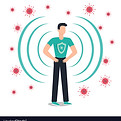
Turkey Tail
Trametes Versicolor


Turkey Tail is one of the most common medicinal mushrooms found in the wild as they grow on dead or dying trees and branches. Turkey Tail can be identified by their striking colors and fans out, resembling a Turkey Tail. They can also be found with an array of different colors giving it the name Trametes Veriscolor or fungus of many colors.
Turkey Tail has been used around the world for centuries as its most impressive quality is in its ability to fight cancer by enhancing the health of our immune system. This is done through 2 polysaccharides found in Turkey Tail called PSK (Krestin) and PSP (Polysaccharide Peptide).
PSP has been known to increase our white blood cell count which may help our immune system adapt to different pathogens, viruses and other infections our bodies may encounter.
PSK has been known to stimulate dendritic cells, help promote immunity to toxins and activate our natural killer T-cells to help protect against pathogens and cancerous tumors.
Due to the ability to strengthen the immune system in these ways PSP and PSK are commonly used in anti-cancer treatments in conjunction with chemotherapy, radiation, and surgery and are still being prescribed today in countries like Japan and China with great success. Due to these health benefits, Turkey Tail has become the most researched medicinal mushroom today.
Turkey Tail has the highest known concentrations of PSP and PSK locked inside of them. Through trials and adjustments to our water extraction process, we feel we have mastered the system to unlock these components and achieve the desired potency we look for in all our products.
Our dual extracted Turkey Tail tincture contains powerful polysaccharides and antioxidants that help naturally boost your immune system and to get it running at its maximum potential and may even help to fight certain cancers! 3 dropperfuls a day may increase gut health, may combat HPV, improve athletic performance, lower insulin levels and even have antibacterial qualities.
Medicinal Benefits

1. Cancer Treatment:
Turkey tail mushrooms have shown promise in cancer management due to compounds like PSK and PSP, which exhibit immunomodulatory and anticancer properties. These compounds enhance the body's immune response against cancer cells, improve the efficacy of conventional cancer treatments like chemotherapy and radiation therapy, in Japan and China because of its ability to help mitigate treatment-related side effects such as immunosuppression and chemotherapy-induced nausea and vomiting (CINV).

2. Immune System Support:
Turkey tail mushrooms contain Polysaccharopeptides (PSP) and polysaccharide-Krestin (PSK), compounds known to enhance immune function by stimulating the activity of immune cells such as natural killer (NK) cells and T cells. These effects are particularly relevant in immunocompromised patients, where boosting immune function is crucial for combating infections.

3. Antiviral Activity:
Research indicates that turkey tail mushrooms possess antiviral properties, particularly against influenza and herpes viruses. By inhibiting viral replication and modulating immune responses, these mushrooms may aid in the prevention and management of viral infections, potentially reducing transmission rates and improving clinical outcomes in affected individuals.

4. Anti-inflammatory Properties:
The anti-inflammatory effects of turkey tail mushrooms can be attributed to their high antioxidant content, including flavonoids and phenols. These antioxidants help mitigate inflammation by neutralizing reactive oxygen species (ROS) and suppressing pro-inflammatory cytokines, offering potential relief for patients with inflammatory conditions such as rheumatoid arthritis and inflammatory bowel disease.

7. Digestive Health:
The prebiotic fibers in turkey tail mushrooms promote the growth of beneficial gut bacteria, such as Bifidobacterial and Lactobacilli, enhancing the gut microbiota's diversity and function. This may be particularly beneficial in patients with gastrointestinal disorders such as Clostridium, Staphylococcus, irritable bowel syndrome (IBS) or inflammatory bowel disease (IBD), as well as those undergoing antibiotic therapy, by supporting gut barrier integrity and reducing intestinal inflammation.

5. Antioxidant:
Turkey tail mushrooms are rich in antioxidants like flavonoids and phenols, which help neutralize harmful free radicals in the body. By scavenging free radicals, these antioxidants protect cells from oxidative damage, thereby reducing the risk of chronic diseases such as cancer, cardiovascular disease, and neurodegenerative disorders.

8. Cardiovascular Support
Regular consumption of turkey tail mushrooms may promote cardiovascular health by modulating lipid metabolism, reducing oxidative stress, and improving endothelial function. These effects contribute to a lower risk of atherosclerosis, hypertension, and cardiovascular events such as myocardial infarction and stroke, making turkey tail mushrooms a potential adjunctive therapy in the management of cardiovascular diseases.

6. Liver Health:
Turkey tail mushrooms contain bioactive compounds such as polysaccharides and triterpenoids that support liver health by enhancing detoxification pathways, reducing hepatic inflammation, and protecting against hepatotoxicity. These hepatoprotective effects may be beneficial in patients with liver diseases such as hepatitis, non-alcoholic fatty liver disease (NAFLD), and alcoholic liver disease (ALD).

9. Insulin Resistance:
A study in rats with type 2 diabetes demonstrated that turkey tail extract significantly reduced blood sugar levels and improved insulin resistance making Turkey Tail a viable treatment option for diabetes.

10. Increase of Endurance and Stamina:
A mouse study showed that turkey tail extract improved exercise performance and reduced markers of fatigue. Plus, the mice treated with turkey tail experienced lower blood sugar levels at rest and post-exercise. When combined with Chaga, tests showed lower levels of lactic acids in the muscle and liver while exhibiting increased levels of creatine.






